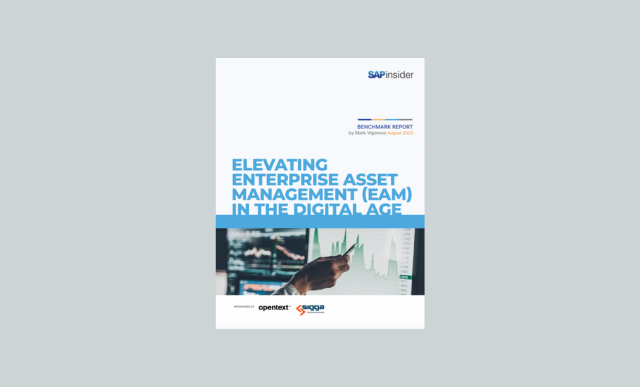Understanding the Move to FinOps with VOQUZ Labs
Meet the Authors
Key Takeaways
⇨ The transition to SAP S/4HANA and cloud subscription models has shifted organizations' reliance from simple on-premise licensing to Managed Service Providers (MSPs) for efficient SAP management and reduced operational complexity.
⇨ Partnering with MSPs allows companies to leverage specialized SAP expertise, ensuring proactive system management, cost optimization, and simplified compliance, thus enabling in-house teams to focus on strategic initiatives.
⇨ As subscription models become the norm, organizations must adopt a proactive approach to SAP license management and compliance, leveraging MSP services to avoid unnecessary costs and maintain data integrity in an increasingly complex regulatory landscape.
For many years, SAP organizations could orchestrate their on-premise SAP landscapes with simple Named User and Engine licenses. In the age of the cloud, this is no longer the case. The move to SAP S/4HANA has made subscription-based models much more prevalent. Additionally, with digital Access and indirect usage models, companies have come to rely on Managed Service Providers (MSP).
MSPs help to ensure seamless, efficient, and secure management of their SAP infrastructure, applications, and services. SAP systems, being complex and critical to business operations, require specialized knowledge and resources to optimize their performance, updates, and maintenance. An MSP provides the expertise and experience necessary to handle these demanding tasks, allowing companies to focus on their core business activities without worrying about system downtime or inefficiencies.
Trusting Expertise in Managing SAP Environments
Companies leveraging SAP solutions often find that their internal resources can be stretched thin by the complexity of managing and maintaining these enterprise systems. This is where MSPs for SAP can be invaluable. By partnering with an MSP, organizations gain access to specialized expertise, dedicated support, and proactive system management that goes beyond traditional IT support.
Explore related questions
One of the primary advantages of working with an MSP like VOQUZ Labs is the deep SAP expertise they bring to the table. These providers invest in continuous training and stay current with the latest SAP technologies, updates, and best practices. This specialized knowledge significantly reduces downtime and mitigates risks associated with system errors or inefficiencies. Additionally, MSPs deliver proactive monitoring of system performance, security, and data integrity. With 24/7 surveillance and rapid-response teams, they resolve issues before they escalate into costly disruptions, enabling in-house teams to focus on strategic initiatives.
Cost-effectiveness is another important benefit. Rather than maintaining a large internal team with niche skills, companies can leverage the scalability of an MSP. This approach minimizes overhead costs while offering services tailored to an organization’s unique needs.
Ultimately, partnering with a managed service provider for SAP allows companies to optimize business processes, maintain high system reliability, and remain agile in a competitive market. It enables organizations to concentrate on core competencies and strategic growth initiatives while leaving the complexities of SAP management in the hands of experts.
Maximizing Value through Managed Services
Not all MSPs are built the same. The management experts at VOQUZ Labs highlighted the difference in a recent webinar between Software Asset Management (SAM) and FinOps (Financial Operations).
One major reason companies opt for an MSP is cost efficiency. SAP can be expensive to manage in-house due to the need for specialized IT professionals, infrastructure, and ongoing support. Hiring and retaining SAP experts requires a significant investment in training, recruitment, and salaries, which can strain financial resources. MSP, on the other hand, offers a cost-effective solution by bundling necessary services into scalable plans, thereby converting fixed costs into variable ones while enhancing value.
VOQUZ Labs highlighted the following advantages organizations that partner with a Managed Service Provider (MSP) for SAP license governance can expect:
- Cost Optimization & Transparency: SAP’s pricing models, especially with RISE, often lack clear cost breakdowns. Managed services provide line-item pricing insights that allow businesses to track and forecast expenses accurately.
- Avoiding Over- or Under-Licensing: Many companies either overpay for unused licenses or risk non-compliance by under-licensing. A managed service ensures continuous monitoring, right-sizing licenses based on actual usage.
- Simplified Compliance & Audit Readiness: SAP audits are increasingly rigorous, and organizations that are unprepared face hefty penalties. Managed services provide ongoing monitoring, ensuring compliance before an audit occurs.
- Real-Time License Monitoring: Unlike periodic reviews, MSPs use tools like samQ and visoryQ to dynamically adjust license assignments in real-time, avoiding unnecessary costs.
- Strategic Focus for IT & Finance Teams: By outsourcing license governance, internal teams can focus on strategic initiatives rather than routine audits and compliance checks.
Evolving to FinOps
Though traditional Software Asset Management (SAM) has served its purpose for years, companies cannot afford to become complacent. By 2026, organizations that reposition software asset managers toward governance and strategic oversight are projected to achieve 30% more efficient software spending.
Companies must evolve their thinking in this area from simply managing their software to operationalizing it through a strategic, proactive approach. This means:
- Proactive, data-driven decision-making: No longer just counting licenses but analyzing usage trends.
- Integration with finance and procurement: Understanding how costs are allocated across cloud, on-premise, and hybrid models.
- Regular benchmarking and contract negotiations: Ensuring that organizations pay only for what they need, not what SAP dictates.
What This Means for SAPinsiders
Subscriptions are here to stay. Plan accordingly. SAP has prioritized cloud revenue and its subscription models going forward. SAPinsiders hoping to return to more traditional licensing options are unlikely to see it materialize. While software license revenue still accounts for a significant proportion of total revenue, it was only just over a third (36%) in 2024. This is only going to increase in the coming years. Organizations that are still manually handling their licensing should search for new, better options. Studies have shown that 78% of companies seek additional services during their cloud migration, and 79% procure strategic consulting services, often from MSPs – and this area is only growing. The global SAP managed services market is estimated to be worth over $300 billion. That figure is projected to climb to over $1 trillion within the next decade. Finding a strategic approach can yield significant ROI, yet only 50% of SAP organizations indicated that they are open to external managed services. With all the focus and investment in cloud services, SAP organizations must find managed services partners that can help them maximize their investment.
Compliance cannot take a back seat. All too often, SAP organizations overlook data security and regulatory compliance issues when finding and implementing new technological solutions. MSPs and FinOps offerings like those from VOQUZ Labs assist with compliance and risk management by ensuring that SAP systems adhere to industry standards and regulatory requirements. This not only safeguards sensitive data but also enhances the company’s reputation and trust among stakeholders. The average cost of compliance issues is skyrocketing, up to nearly $15 million in 2024. Further, unplanned outages and data breaches can cost companies millions of dollars as well, in addition to the incalculable reputational damage they suffer. Companies may wonder if they can get by manually handling their own licensing and software, but they may not be able to afford the resulting damage if they get it wrong.
Leading organizations optimize every aspect of their business. Just five years ago, only 20% of SAP applications were cloud-based. That figure has more than doubled and an increasing share of businesses have 100% of their applications in the cloud. SAP licensing can no longer function as a set it and forget it function. With pricing models shifting, new deployments coming online, and new regulations coming from governments all over the world, companies need to take an active approach. Adopting a more proactive, intelligent approach, such as VOQUZ Labs’ offering for FinOps-based SAP License Management, allows companies to stay compliant, optimize costs, and maximize value from their SAP investments.






